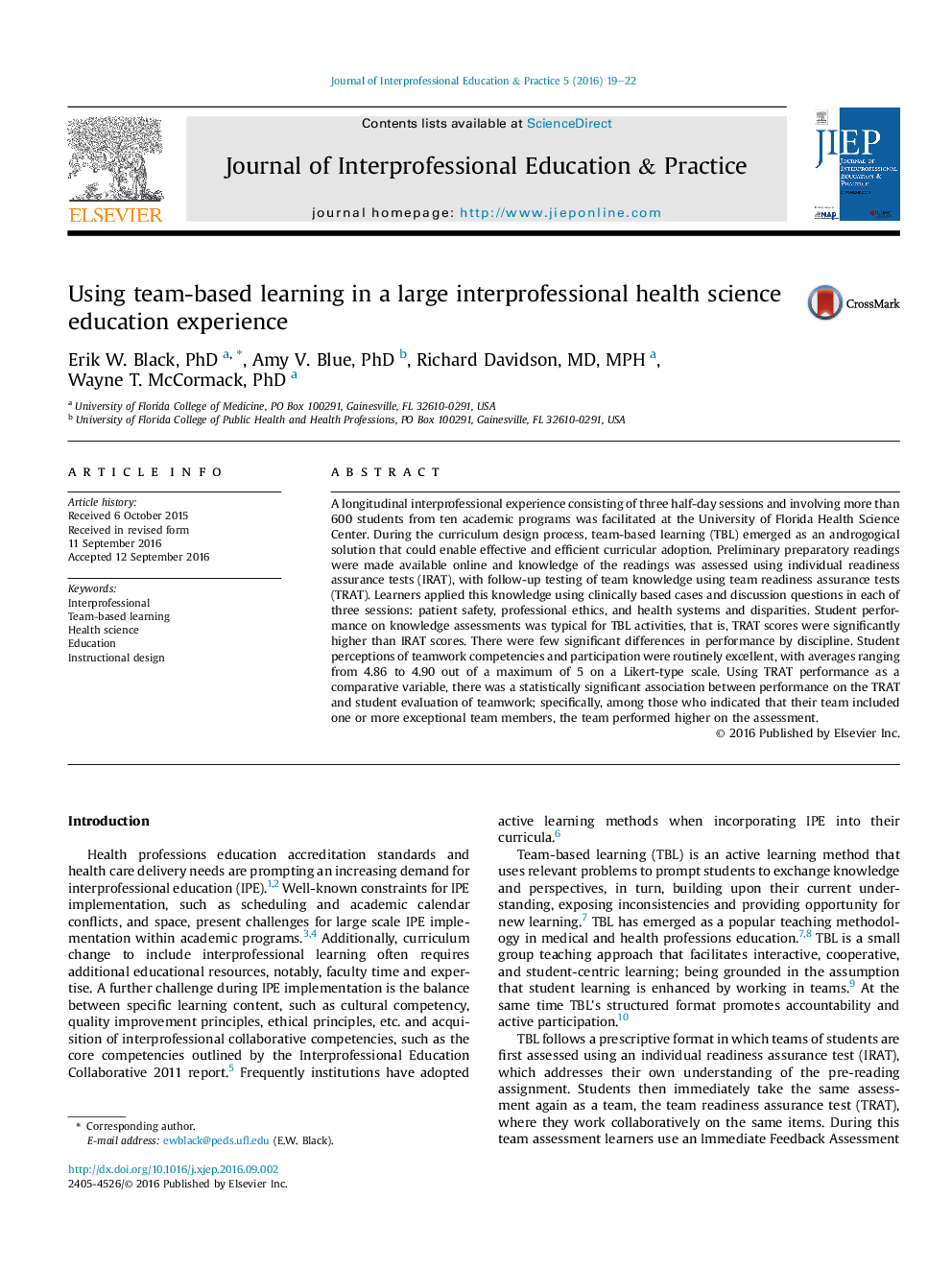| Article ID | Journal | Published Year | Pages | File Type |
|---|---|---|---|---|
| 5870219 | Journal of Interprofessional Education & Practice | 2016 | 4 Pages |
Abstract
A longitudinal interprofessional experience consisting of three half-day sessions and involving more than 600 students from ten academic programs was facilitated at the University of Florida Health Science Center. During the curriculum design process, team-based learning (TBL) emerged as an androgogical solution that could enable effective and efficient curricular adoption. Preliminary preparatory readings were made available online and knowledge of the readings was assessed using individual readiness assurance tests (IRAT), with follow-up testing of team knowledge using team readiness assurance tests (TRAT). Learners applied this knowledge using clinically based cases and discussion questions in each of three sessions: patient safety, professional ethics, and health systems and disparities. Student performance on knowledge assessments was typical for TBL activities, that is, TRAT scores were significantly higher than IRAT scores. There were few significant differences in performance by discipline. Student perceptions of teamwork competencies and participation were routinely excellent, with averages ranging from 4.86 to 4.90 out of a maximum of 5 on a Likert-type scale. Using TRAT performance as a comparative variable, there was a statistically significant association between performance on the TRAT and student evaluation of teamwork; specifically, among those who indicated that their team included one or more exceptional team members, the team performed higher on the assessment.
Related Topics
Health Sciences
Medicine and Dentistry
Public Health and Health Policy
Authors
Erik W. PhD, Amy V. PhD, Richard MD, MPH, Wayne T. PhD,
